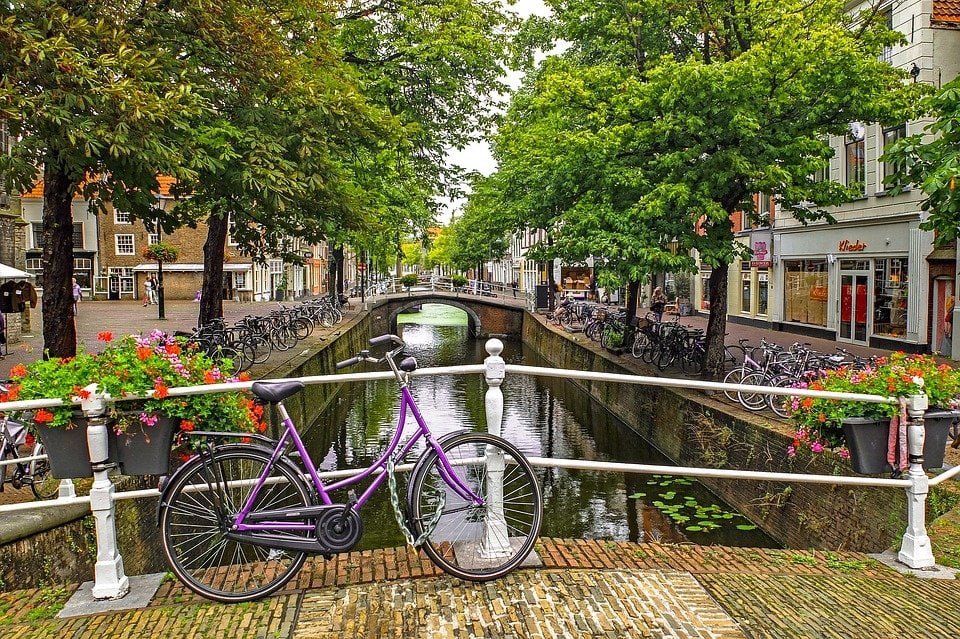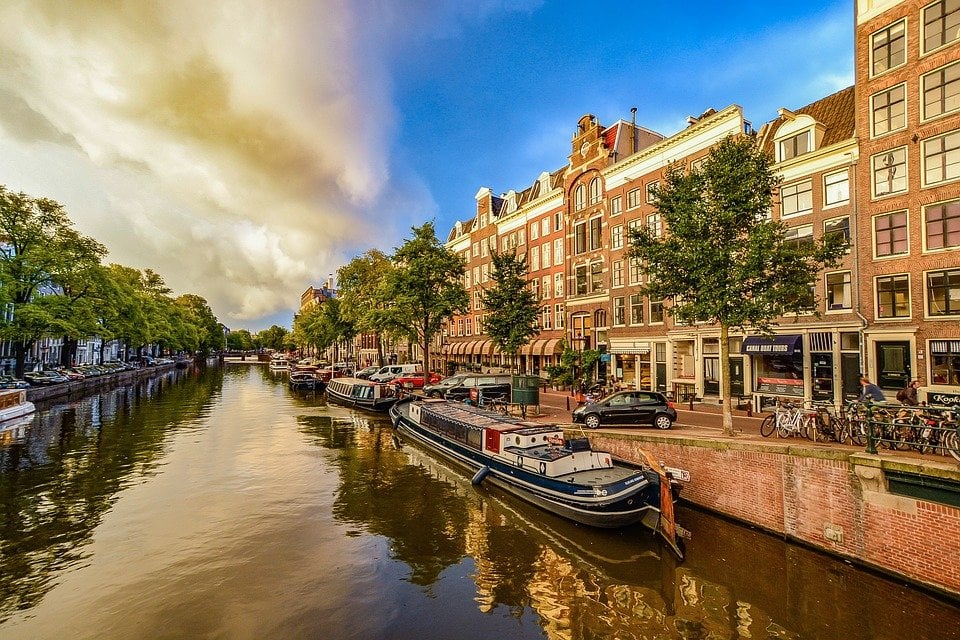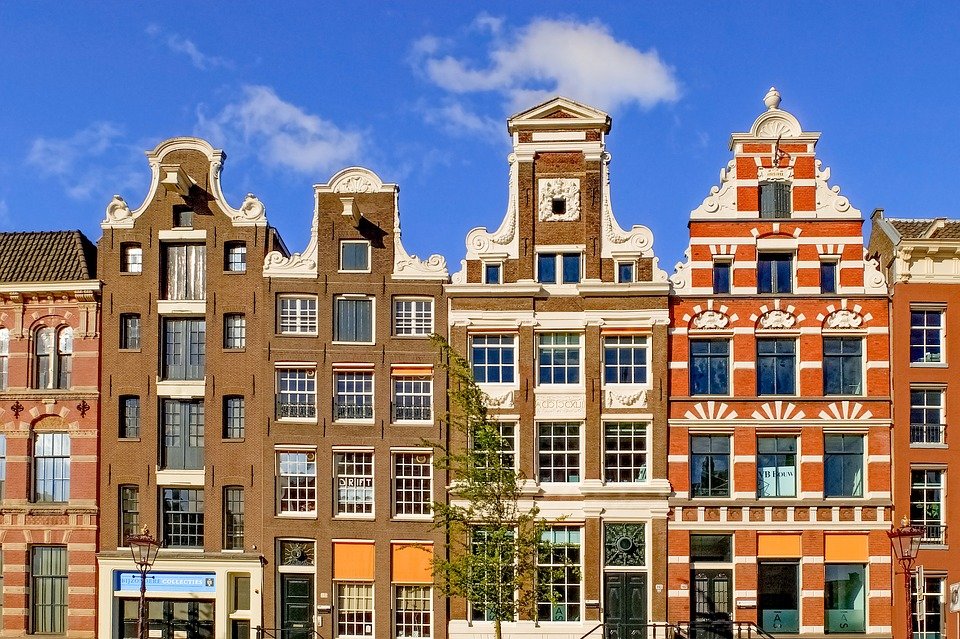What to Know Before Studying Abroad in the Netherlands
Here are several of the biggest takeaways this traveler learned from their experience studying abroad in the Netherlands.

When I signed up to study abroad in the Netherlands in 2012, I was embarrassingly ignorant of where I was going in terms of geography, culture, language, and probably several other things I should have known. My university study abroad program and the wonderful world of Wikipedia supplied the logistical information I needed to know before my departure, but most of the best learning didn’t occur until after I dragged my suitcase off of a train and across cobblestone streets looking for my new dwellings on my first trip abroad.
To help put you ahead of the learning curve should you be about to embark on a similar adventure, here are several of the biggest takeaways I learned from my experience studying abroad in the Netherlands.
You’ll Need to Secure Your Own Housing
Generally, Dutch universities are not self-contained, and the academic buildings tend to be mixed in with other city buildings. As such, these universities do not offer on-campus student accommodations, like in the form of dorms. This means that students are often required to find their own living arrangements either through things like renting a private room in someone's house or apartment or living in a bigger house found through various housing accommodation providers.
In my experience at my university, most of the international students I knew lived in international houses, ranging in size from a few dozen people to a more dorm-like building that housed hundreds. The perks of this type of housing is that it is usually filled with students from across the world studying in all different programs. If you didn't think moving to the Netherlands would bring enough diversity to your life, try living in a house with over 50 people from at least a dozen different countries. The mix of language, foods, and lifestyles will teach you of lands far beyond this tiny little corner of Europe.
Get Ready to Bike… Everywhere!

Yeah, I get it: biking is an obvious stereotype when you picture the Netherlands. But, let me tell you -- there really are more bikes than people here. The multi-level parking garages found in many cities are quite often dedicated just to bikes in the Netherlands. The bike lanes and paths are very well established, and the country is incredibly flat -- you’re not likely to find a land more conducive to biking culture and will definitely be the odd one out if you don’t take advantage of it.
There are bikes full of groceries, bikes with giant boxes on the front to transport your IKEA couch or piano home. There are bikes with three children attached in various ways as moms bike everyone to school. There are bikes with someone's girlfriend riding sideways on the rack over the back tire. There are flocks of bikes with university students riding home from the bar in the wee hours of the morning. There are bikes on bikes on bikes.
One of the first things you probably should do after arriving is log on to your nearest internet marketplace and find a used bike for your time in the country. Just be sure to lock it up when you park it outside. The Netherlands is a rather safe country, but loose bikes have a way of rolling away.
Everyone Knows English
As a sign of respect to a country that you're living in -- and just as a basic survival tactic -- it's always highly advisable to learn a bit of the language before you go. While Dutch is not one of the most popular languages in the world, you can certainly find ways to educate yourself before you arrive; maybe your university will even offer a class during your semester abroad.
That being said, should you not have time to completely master the guttural sounds of this Germanic language, do not be afraid. Dutch people are fantastic English speakers. Chances are, you may attempt to start a conversation in Dutch, and the person you're conversing with will voluntarily switch to English upon the immediate recognition that you clearly could benefit from their mercy. As an exchange student, you're also most likely be taking all of your courses in English.
The risks of this are that, if you don't make an effort to learn the language, you could end up leaving the Netherlands without knowing much Dutch at all, which would be a shame. However, the benefit is that of all the things you're likely already worried about regarding studying in a foreign country, getting lost and not being able to ask for directions should not be one of them.
Getting ‘Good’ Grades May Be Challenging

Like any university in the U.S., the sizes and types of classes you take in the Netherlands will depend on your major, the course itself, and the level. But, speaking at least from a humanities-type student perspective, I can make a couple generalizations.
While there are regular readings and such to help prepare for classes, there is typically little busy work and only a few graded assignments throughout the semester. This can be great, if you spend an ample amount of time preparing for them, or dangerous if you're too busy gallivanting around Europe to remember you still need to pass your classes. When you get to the final exam at the end of the semester, also be prepared to take it in a football field-sized room lined with hundreds and hundreds of desks filled with students from across the university.
Don't expect to get the exact same grades you got in the US. Not only do different professors have different priorities and standards, but the Dutch education system considers high grades as much more unattainable than an average American university. For example, out of 10 points, an 8 is considered good, and 9 and 10, which are considered great and outstanding, respectively, are rare gems you'll have a hard time ever finding. Your home university might weight the grades differently when they transfer back home, but just remember you're operating in a different system. Yes, of course, you should still work hard, but adjust your expectations accordingly.
The Erasmus Programs Benefits You Too
The Erasmus Student Network (ESN), which is an international student organization throughout Europe, is alive and strong at universities in the Netherlands. ESN organizes welcome events, trips, cultural events, museum visits, and party throughout the year and provides enough variety in programming to impress your friends back home while still making your grandma proud to claim you.
Taking advantage of these opportunities will be helpful for making both international and Dutch friends and helping develop a social circle from your first week in the Netherlands.
Yes, the Red Light Districts are Real…
...No, you probably won’t actually find them that interesting.
When you start telling people you’re going to study the Netherlands, chances are at least someone will bring up the Red Light Districts and marijuana-selling “coffee shops.” Yes, these exist; and, no, they’re not just in Amsterdam. However, should you happen across one of these in your city, you’ll quickly notice that they’re relatively underutilized and probably most frequented by tourists. Perhaps as a reflection of the de-stigmatization, the Dutch people seem to rarely frequent such establishments.
While you might a kick out of taking a peek into this more “exotic” side of Dutch cities, keep in mind you’re not a tourist. If your goal is to immerse yourself in true, everyday Dutch culture, you’ll likely not find it here.
You Can Easily Travel Within the Netherlands (& All of Europe)

No doubt you know by now that travel throughout Europe is relatively easy and can be quite affordable via budget airlines and international trains and buses. But I implore you to also take a look at the plethora of travel opportunities within this small, sub-sea level nation.
You can’t miss key places like the Anne Frank house and the Van Gogh Museum in Amsterdam, but also check out the sprawling Keukenhof tulip fields in the spring. Then there’s the Kröller-Müller Museum, housed in the Hoge Veluwe National Park in Otterlo; Schiermonnikoog National Park, situated on Schiermonnikoog Island in Friesland; and Giethoorn, a village with virtually no roads nicknamed the “Venice of the North” for its vast canal network. You could go to the Hague and check out the International Criminal Court or stop by the Escher in Het Paleis museum, which houses the work of the famous Dutch artist M. C. Escher.
While studying abroad in the Netherlands is without a doubt a great opportunity to explore the rest of the continent, don’t forget to save some time to explore your own backyard, either through ESN trips, or the country-wide train and bus systems.
You’ll Probably Have Lots of Fellow International Friends
Dutch people are a friendly folk and willing to offer a helping hand. They overall culture is pretty relaxed and open to different types of lifestyles. In fact, the Netherlands was the first country to legalize gay marriage. The people seem pretty content with their lives; it’s not highly competitive; and the country consistently ranks among the happiest countries in the world.
However, chances are your friendship circle may be largely composed of fellow international students, unless you make a strong effort to immerse yourself and foster local friendships. From my observations, Dutch friend groups are strong and long-lasting. They make friends early on, and outsiders take a while to become fully welcomed into the fold. Renting a room from a local and joining things like sports teams, ESN activities, or academic department events can help you make inroads if you’re trying for a more authentic immersion experience.
All in all, the studying abroad the Netherlands is an amazing opportunity, and I’ve never met a person who’s been there that wouldn’t leave the experience a glowing recommendation. It’s a perfect balance of historical and modern and is a unique culture that is different than the US, but not so different that you should be intimidated if it’s your first international excursion.
If you take the plunge, I’m sure you’ll be longing to return for the gouda cheese, the ease of biking, or the orange-adorned streets and parties of King’s Day for years to come.
